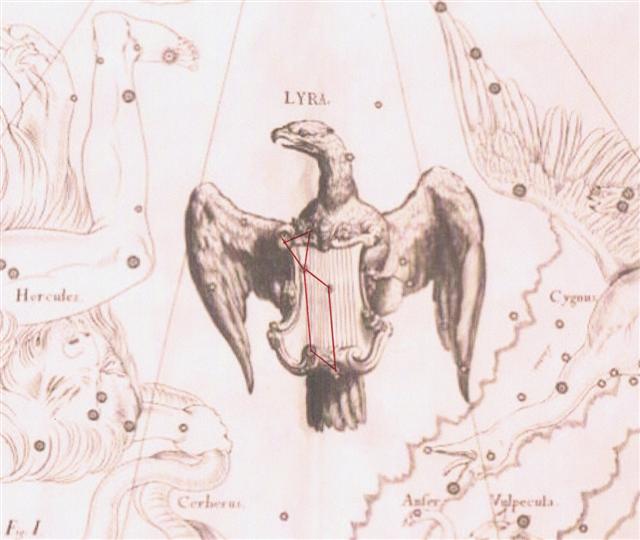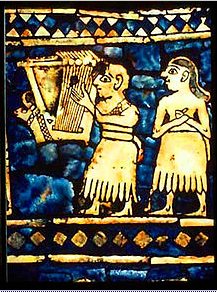5. Many more esoteric ideas remain to be discussed. But my main point is that whereas north of the equator 'nightfall' might come in October the same time will south of the equator be where summer light is born. North of the equator Sun could be bound and tucked away until next spring, whereas south of the equator he would be released from his winter prison. Ropes of the proper sort can bind Sun. Playing Cat's Cradle can hurt him when he is close to the horizon. The stitches of time will make the Dark Cloth hold him during winter, closely embraced by his Mother, in order to generate offspring: ... there existed from the very beginning two divine beings, Rangi-nui, Great Sky-father, and Papa-tua-nuku, Earth-mother. Yearning for a mate Rangi descended from heaven and made Papa his wife. Within their loving embrace were born seventy male gods ... North of the equator Gemini once was at spring equinox: ... All 'change stations' are found invariably in two regions: one in the South between Scorpius and Sagittarius, the other in the North between Gemini and Taurus; and this is valid through time and space, from Babylon to Nicaragua. Why was it ever done in the first place? Because of the Galaxy, which has its crossroads with the ecliptic between Sagittarius and Scorpius in the South, and between Gemini and Taurus in the North ... Men's spirits were thought to dwell in the Milky Way between incarnations. This conception has been handed down as an Orphic and Pythagorean tradition fitting into the frame of the migration of the soul. Macrobius, who has provided the broadest report on the matter, has it that souls ascend by way of Capricorn, and then, in order to be reborn, descend again through the 'Gate of Cancer'. Macrobius talks of signs; the constellations rising at the solstices in his time (and still in ours) were Gemini and Sagittarius: the 'Gate of Cancer' means Gemini. In fact, he states explicitly (I,12.5) that this 'Gate' is 'where the Zodiac and the Milky Way intersect'. Far away, the Mangaians of old (Austral Islands, Polynesia), who kept the precessional clock running instead of switching over to 'signs', claim that only at the evening of the solstitial days can spirits enter heaven, the inhabitants of the northern parts of the island at one solstice, the dwellers in the south at the other ... Considering the fact that the crossroads of ecliptic and Galaxy are crisis-resistant, that is, not concerned with the Precession, the reader may want to know why the Mangaians thought they could go to heaven only on the two solstitial days. Because, in order to 'change trains' comfortably, the constellations that serve as 'gates' to the Milky Way must 'stand' upon the 'earth', meaning that they must rise heliacally either at the equinoxes or at the solstices. The Galaxy is a very broad highway, but even so there must have been some bitter millenia when neither gate was directly available any longer, the one hanging in midair, the other having turned into a submarine entrance ... (Cfr at Ana-tipu.) I suggest the strings of a harp illustrate the pair of 'change stations', where spirits can move up and down:    |